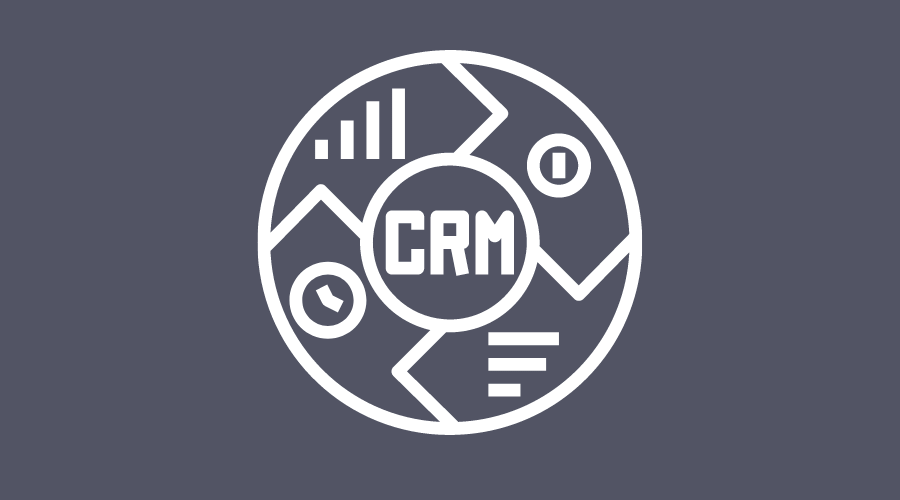CRM traditionally stands for Customer Relationship Management. The first CRM platforms were focused on retaining customers and driving repeat sales. Typical names in this space are Siebel, Oracle, and of course Salesforce. But for recruiting purposes, many recruiters simply refer to it as Candidate Relationship Management. It is a software platform that allows recruiters to communicate with prospective candidates in order to engage them with the employer and/or get them to apply to jobs.
The purpose behind a recruitment CRM is about treating candidates like customers. A good recruiting CRM enables you to communicate effectively through email or text to your candidates and see what emails have been opened and if those opens led to clicks on your career content. A CRM is used at the top of the funnel and its best use case is for candidates who have expressed an interest in your company but have not yet applied to a job.
Several major ATS vendors have created built-in workflows and automations with CRM like functionality. A modern ATS, or recruitment CRM, allows users to manage every aspect of the candidate relationship, from initial sourcing through to the job offer stage. Employers today need the ability to attract talent not just manage them. A good CRM can engage candidates and guide them throughout the hiring process.
Features of a CRM for Recruiting
The key features for a recruiting CRM platform include the following:
- Creating and segmenting a pool of candidates according to skill or job type
- Sending personalized emails and texts to prospective candidates
- Creating engaging email campaigns that reflect your company brand and important news and updates
- Conducting candidate surveys to get their feedback on their experience with your process
- Candidate relationship management analytics such as the ability to track open rates and clicks to your career site.
What a CRM for Recruitment can help you do:
- Make communicating with candidates much easier.
- Build a strong talent community from a single database that can be searched.
- Engage, attract, source, and manage candidates from apply to interview.
- Facilitate hiring workflows – automate recruiting emails, automate job offers, interview scheduling, background checks, etc.
- Analyze and measure your recruiting activities through a dashboard (generate reports)
Some CRMs can also be used to collect applications (just like an ATS) but generally speaking they are more for job marketing purposes rather than an ATS which is used to store their data and make it searchable. The ATS is not a good replacement for a recruiting CRM. The CRM can replace an ATS however.
 Why use a recruiting CRM?
Why use a recruiting CRM?
Candidates are twice as likely to accept cold emails from recruiters if they have interacted with your brand before (source:OfficeVibe). So it will make your job easier if you use it to increase your employer brand so more candidates know about it.
If you have thousands of candidates in your ATS you’ll need a tool to organize, manage and engage those people. Much of a CRM can be automated. For instance you can setup an automated email campaign to contact job seekers on a monthly basis. If they don’t open your email you can set up the CRM to automatically email a reminder to those candidates who haven’t opened your first email.
Not only will it make your job easier, you can use campaigns to drive more applications to your open jobs.
So how do you know if a recruiting CRM is right for your company?
If you…
- Actively source candidates a CRM can help you establish relationships with them through content and messaging.
- Still use a spreadsheet to manage candidates you can become much more efficient with a CRM
- Have more than one person recruiting a CRM can empower each one on your team to market your employer brand more effectively.
- Have hard-to-fill jobs a CRM can help you build a pipeline of those candidates overtime and let them express an interest in youropening even if they are ready to move.
- Hold virtual job fairs a CRM can be used to effectively capture those attendees so you can later market your openings to them.
 Recruiting CRM systems let you automate the majority of the marketing process and administrative tasks that take up valuable time, and let you get back to the important efforts like building rapport. Another way to think of a CRM for recruiting is as a candidate “nurturing” tool. Employers can use it to nurture talent much like a sales person nurtures a lead in the sales lifecycle. Recruitment CRMs are a talent ecosystem, full of passive and active candidates. The best recruiters know how to optimize and manage this intelligence tool to get the most out of it.
Recruiting CRM systems let you automate the majority of the marketing process and administrative tasks that take up valuable time, and let you get back to the important efforts like building rapport. Another way to think of a CRM for recruiting is as a candidate “nurturing” tool. Employers can use it to nurture talent much like a sales person nurtures a lead in the sales lifecycle. Recruitment CRMs are a talent ecosystem, full of passive and active candidates. The best recruiters know how to optimize and manage this intelligence tool to get the most out of it.
Running a CRM for recruitment certainly takes effort. It’s best to assign a full time person to the role, someone who understands marketing as a core function. But don’t correctly, your own CRM can help you recruit more efficiently while providing an awesome experience for those career seekers who interact with you.


 Why use a recruiting CRM?
Why use a recruiting CRM? Recruiting CRM systems let you automate the majority of the marketing process and administrative tasks that take up valuable time, and let you get back to the important efforts like building rapport. Another way to think of a CRM for recruiting is as a candidate “nurturing” tool. Employers can use it to nurture talent much like a sales person nurtures a lead in the sales lifecycle. Recruitment CRMs are a talent ecosystem, full of passive and active candidates. The best recruiters know how to optimize and manage this intelligence tool to get the most out of it.
Recruiting CRM systems let you automate the majority of the marketing process and administrative tasks that take up valuable time, and let you get back to the important efforts like building rapport. Another way to think of a CRM for recruiting is as a candidate “nurturing” tool. Employers can use it to nurture talent much like a sales person nurtures a lead in the sales lifecycle. Recruitment CRMs are a talent ecosystem, full of passive and active candidates. The best recruiters know how to optimize and manage this intelligence tool to get the most out of it.